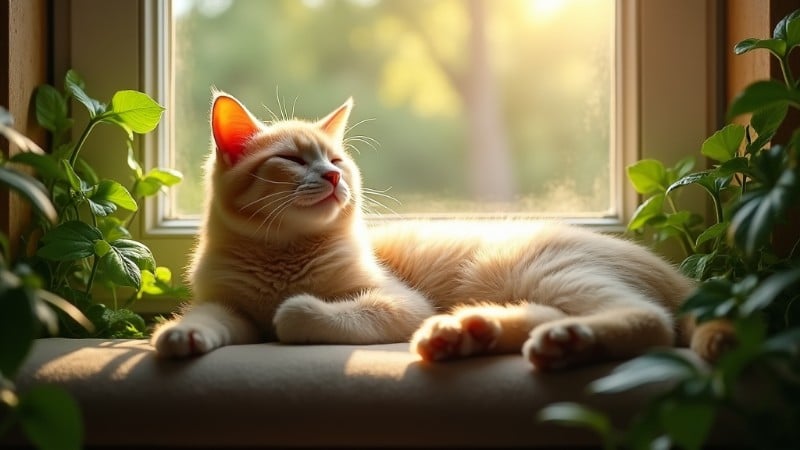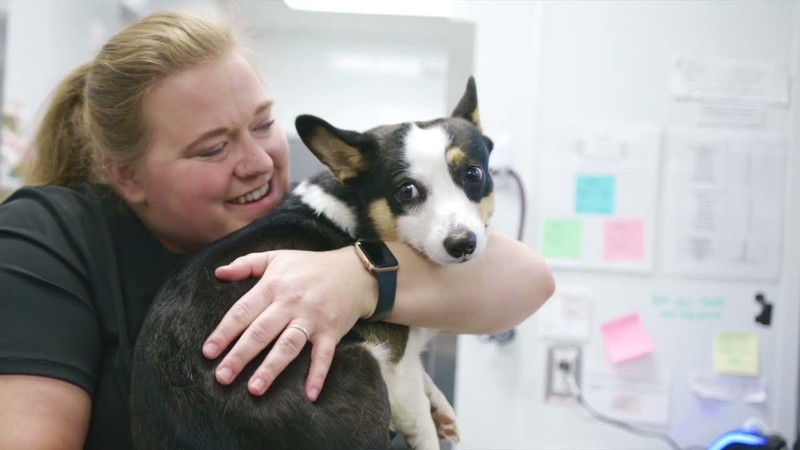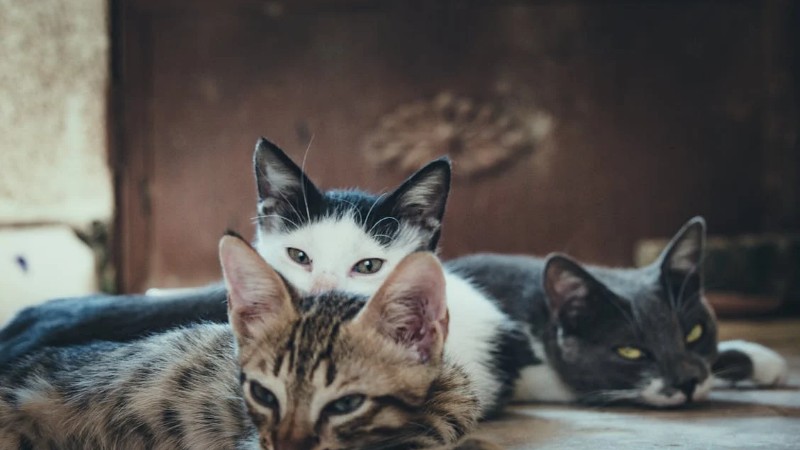For thousands of years, humans have shared their lives with cats. Beyond being beloved companions, cats are increasingly recognized for their positive impact on both physical and mental health.
Research from various institutions has explored the deep bond between humans and cats, revealing surprising benefits that go beyond mere companionship. But is owning a cat truly good for our health, and what are the potential risks involved? Let’s delve into the science behind the human-feline connection and uncover the profound impact cats can have on our well-being.
Key Takeaways
Owning a cat has been found to have numerous health benefits, including reducing cardiovascular disease risk, lowering stress levels, and providing emotional support.
- Cat ownership may reduce the risk of cardiovascular disease by lowering blood pressure and cholesterol levels.
- Cats offer emotional support and companionship, which can reduce symptoms of anxiety, depression, and loneliness.
- The bond between humans and cats is key to the health benefits of cat ownership, with a strong emotional connection leading to greater psychological benefits.
Physical health benefits of cat ownership
Studies have found that cat ownership may reduce the risk of cardiovascular disease. Cats’ presence can lead to lower blood pressure and cholesterol levels, contributing to a healthier heart. In fact, research published by the American Stroke Association suggests that cat owners may have a lower risk of dying from heart attacks and strokes compared to non-cat owners. The emotional connection between cats and their owners plays a vital role in these health benefits.
A key study highlighted that people who share their lives with cats experience lower stress levels, which is a major contributor to cardiovascular health. This reduction in stress is likely due to the soothing effects of being around cats, whose gentle purring has been shown to have a calming influence on the nervous system.
The presence of a cat in the home can act as a buffer against the everyday stresses of life, helping individuals manage their emotional health better.
Moreover, owning a cat can also support general physical activity. While cats are relatively low-maintenance pets compared to dogs, their playful nature encourages their owners to engage in light physical activities, such as playing with toys or walking around the house to care for them. These small but regular physical interactions contribute to overall better health outcomes.
Mental health benefits and emotional support
The mental health benefits of cat ownership are equally significant. Cats offer emotional support and companionship, which can reduce symptoms of anxiety, depression, and loneliness.
Many cat owners report feeling less isolated and more connected, thanks to the emotional bond they share with their pets. Research has shown that petting or interacting with a cat can increase levels of serotonin and dopamine—neurotransmitters that are closely associated with feelings of happiness and well-being.
In particular, cats can provide a great source of comfort for individuals dealing with mental health challenges. A study found that people who live with cats often view their pets as family members.
This deep emotional attachment helps to foster a sense of loyalty and responsibility, which is crucial in times of emotional distress. For individuals living alone, especially during challenging periods such as the COVID-19 pandemic, cats have offered companionship and emotional stability.
One study found that people suffering from depression experienced temporary relief of symptoms simply by petting or playing with their cats. This physical interaction provides a soothing distraction from negative thoughts and helps promote relaxation.
Additionally, having a pet at home can provide structure to one’s day, offering a sense of purpose through routine tasks such as feeding and caring for the cat.
For seniors, the benefits of cat ownership are particularly significant. Many older adults experience feelings of loneliness and isolation, especially if they live alone. Owning a cat can help fill the emotional void by providing companionship and a sense of responsibility.
Unlike other pets, cats require relatively little maintenance, making them ideal for seniors who may have mobility or physical limitations. This companionship can lead to improved mental health, reduced stress, and a greater sense of well-being.
Understanding the human-cat bond
The emotional bond between cats and their owners is key to the health benefits of cat ownership. However, the level of attachment between owner and pet can vary, and this may influence the extent of the emotional benefits experienced.
Research suggests that those who view their cats as family members or close companions tend to enjoy a stronger emotional connection and greater psychological benefits than those who see their cats simply as pets or animals.
A study conducted in the Netherlands revealed that around 50% of cat owners consider their pets as part of their family. This deep bond has even led researchers to develop a “family bondedness” scale, which measures the intensity of emotional attachment between owners and their feline companions. This scale is often used in studies that examine the impact of pets on human health.
Cats also play a significant role in providing emotional support during difficult times. The emotional bond between humans and cats can help individuals cope with stress, grief, or significant life changes. For instance, many people report that their cats offer a calming presence during periods of anxiety or sadness, often sensing their owners’ emotions and responding accordingly.
Furthermore, cats are highly attuned to human behavior. Research shows that cats have developed specific vocalizations, such as a distinctive meow, to elicit nurturing responses from their owners. These subtle cues are a testament to the depth of the relationship between humans and cats, as the animals adapt to their owners’ emotional states.
Potential risks
It’s essential to recognize the potential risks involved with owning a cat, particularly concerning health. One of the main concerns for cat owners is the risk of zoonotic diseases, such as toxoplasmosis. Cats can carry this parasitic disease, which can be transmitted to humans, especially through contact with cat faeces.
This is a concern for pregnant women and individuals with weakened immune systems, who should avoid handling litter boxes or interacting with cat waste without proper protection.
Another common health concern associated with cats is allergies. Many people are allergic to cat dander, which can trigger symptoms such as sneezing, itchy eyes, and even asthma attacks. For those prone to allergies, owning a cat may require extra care, such as maintaining cleanliness in the home and using air purifiers to reduce allergens.
Despite these risks, with proper precautions, the health benefits of cat ownership generally outweigh the potential downsides for most individuals.
It’s important for prospective cat owners to fully understand the responsibilities involved in caring for a cat. Cats require regular veterinary care, proper nutrition, and a clean living environment to ensure their health and well-being. Owners should also be mindful of their cats’ mental and emotional needs, providing adequate stimulation and opportunities for social interaction.
Final thoughts
In conclusion, owning a cat offers a wide range of health benefits, from reducing the risk of cardiovascular diseases to providing emotional support and improving mental health. The bond between humans and cats is deeply rooted, with many owners viewing their pets as family members.
This emotional connection can lead to reduced stress, better emotional well-being, and a sense of companionship that is particularly valuable for individuals dealing with loneliness or mental health challenges.
However, it is important to acknowledge the risks involved in cat ownership, such as zoonotic diseases and allergies. By taking the necessary precautions, such as practicing good hygiene and ensuring proper care for their pets, cat owners can mitigate these risks and enjoy the full benefits of feline companionship.















